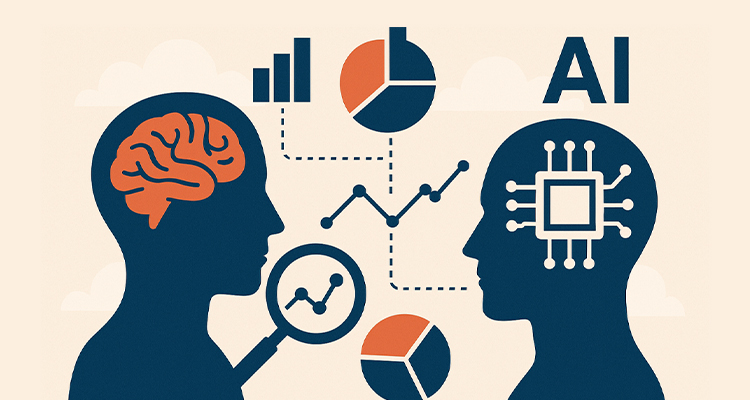The Impact of AI on Marketing Research Teams, Agencies, and Education

The integration of Artificial Intelligence (AI) is rapidly transforming various industries, and marketing research is no exception. This article explores the likely profound impact of AI tools and platforms on marketing research teams, agencies, and educational institutions. As AI tools and platforms become increasingly sophisticated and integrated into research workflows, it is crucial to understand the evolving roles, structural shifts, and emerging skill sets required to navigate this new landscape effectively. This analysis delves into the implications for in-house research departments managing internal AI tools and data platforms, the enduring role of agencies leveraging specialized AI tools and platforms, and the necessary adaptations within educational programs to prepare the next generation of researchers who can critically evaluate complex analytical tools and platforms.
What This Means for Research Teams and Structures
The evolution of human roles will also likely reshape the structure of in-house research departments and agencies. As AI becomes part of workflows, brands may increase their internal insight abilities, but agencies will remain important partners.
In-House Trends
- Growth in internal ownership of AI research tools and data platforms, requiring strong data management and security practices.
- Expansion of roles focused on using insights, checking AI, assessing vendors, managing internal stakeholders, and new areas like AI ethics and prompt creation.
- Management of the large volume of insights generated, requiring skilled data storytellers to share findings clearly.
- Development of teams combining researchers, behavioral scientists, research technologists, and potentially change management specialists to adapt to new workflows.
- Increased focus on training existing research teams to use AI tools well.
The Enduring Role of Agencies
- Agencies like Q2 Insights will continue to serve as key partners offering an outside perspective and wide industry experience.
- Agencies will likely help handle AI output at scale, select useful strategies, and summarize learnings from different sources, using their specialized knowledge.
- Agencies will stand out by offering advanced research methods (e.g., causal AI, NLP for qualitative data, predictive modeling), strategic interpretation, unbiased platform evaluation, and careful human analysis of AI outputs.
The client-agency dynamic may change, but it will probably not disappear. Agencies will increasingly act as insight strategy advisors, organizers of information in a large, AI-supported world, providing specialized knowledge and outside views that support in-house abilities.
Implications for University Programs
The academic pipeline may not yet be fully aligned with this future. Traditional training focuses on foundational methods, but the AI era, with its vast data volumes and complex analytical tools and platforms, demands a significant retooling of marketing research education to setup graduates for success in this evolving landscape.
Three priorities for future-ready curricula:
AI Fluency for Researchers
Students must learn how AI works within various complex analytical tools and platforms, how to evaluate these technologies for their suitability, how to detect and mitigate bias inherent in algorithms and data, and how to assess fit-for-purpose within specific research contexts. Training should include real-world assessments of diverse AI tools and platforms, hands-on experience working with emerging technologies, and an understanding of how foundational research principles inform AI-driven analysis.
Human-Centered Insight Training
Programs should strongly emphasize emotional intelligence, contextual thinking, and compelling storytelling. Researchers must be able to translate complex data, including insights derived from AI tools and platforms, into clear, actionable strategies that resonate ethically and effectively with diverse audiences. This requires understanding the "why" behind consumer behavior, a skill uniquely human.
Research Operations and Ethics
Courses should include data governance related to the use of complex analytical tools and platforms, knowledge management in AI-augmented environments, ethical considerations specific to AI (including privacy and potential for discriminatory outcomes), advanced bias mitigation techniques within AI systems, and effective cross-functional communication. Students should be prepared to lead teams in AI-augmented environments and manage complex insight ecosystems responsibly. Fostering interdisciplinary collaboration with related fields will also be crucial.
There is a growing market for researchers who can critically evaluate complex analytical tools and platforms, seamlessly integrate insights across these technologies, and help brands avoid being navigate data complexity with clarity and purpose. Equally important is the need for those who can apply our human "superpowers" such as empathy, critical thinking, and ethical judgment to content generated by AI tools and platforms to ensure relevance, resonance, and actionable strategies that truly understand and serve human needs. University programs must also cultivate a mindset of lifelong learning to prepare graduates for the continuous evolution of AI in research.
In Closing
The exponential growth of AI tools and platforms presents both significant opportunities and challenges for the marketing research field. While AI tools and platforms offer enhanced speed, scale, and analytical power, the human element remains indispensable. The ability to critically evaluate AI outputs, interpret insights from diverse sources, and discern what is important to pay attention to in a sea of data, and apply uniquely human skills such as empathy and ethical judgment to content generated by AI tools and platforms will be paramount. Moving forward, a collaborative ecosystem involving well-equipped in-house teams with internal AI tools and data platforms, agile agencies leveraging specialized AI tools and platforms, and forward-thinking educational programs will be essential to harness the full potential of AI while upholding the integrity and strategic value of marketing research. The future of the industry hinges on our collective ability to adapt, learn, and integrate AI thoughtfully, ensuring that technology serves to amplify, rather than replace, the crucial insights derived from understanding human needs.
Kirsty Nunez is the President and Chief Research Strategist at Q2 Insights, a research and innovation consulting firm with international reach and offices in San Diego. Q2 Insights specializes in a wide range of research methodologies and predictive analytics. The firm uses AI tools to enhance the speed and quality of insights delivery while relying on the expertise and judgment of human researchers. AI is applied exclusively to respondent data and is never used to generate findings, which remain grounded in human analysis and interpretation.


